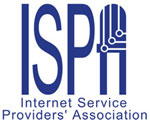
Top stories






More news


Marketing & Media
Ads are coming to AI. Does that really have to be such a bad thing?














In particular, ISPA says it has welcomed the fact that the Committee voted not to adopt the options proposed on the definition of consent. This would have effectively changed POPI's position on unsolicited direct marketing to an opt-out position.
ISPA is also pleased that consent is opt-in which creates greater control for consumers over their personal information and unsolicited approaches. On the face of it, the provisions relating to direct marketing by means of unsolicited electronic communications are in the order of magnitude stronger than those currently set-out in Section 45 of the ECT Act.
ISPA says it looks forward to the Bill becoming an Act so that it can continue its efforts to take action against unsolicited email marketing sent from within SA.
The extent of the problem is reinforced by a recently-released Symantec report indicating that one in every 1.48 emails received by South Africans during July 2012 were considered spam, which made up 67.8% of all South African email traffic during that period.
An ISPA spokesperson concluded, "We are pleased that the drafters have acknowledged the costs of unsolicited commercial marketing to individuals and broader society and sought to adopt an approach which brings into play a better balance between consumer rights and marketing conduct. ISPA will continue its efforts to educate marketers and the public about best practise in email marketing and we believe that the Bill, once enacted, will assist these efforts by providing for a clear legal position."